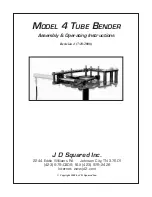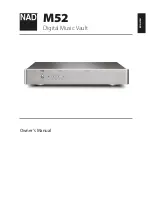Summary of Contents for EETA308D
Page 1: ...Low Amp Probe EETA308D Reference Manual ...
Page 2: ......
Page 6: ...Low Amp Probe EETA308D Reference Manual March 2011 ...
Page 21: ...14 8 0 DECLARATION OF CONFORMITY ...
Page 22: ...NOTES 15 ...
Page 23: ...NOTES 16 ...
Page 24: ......
Page 25: ...ZEETA308D Printed 11 03 Snap on Kenosha WI 53141 1410 ...






































